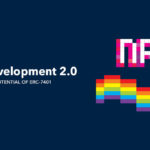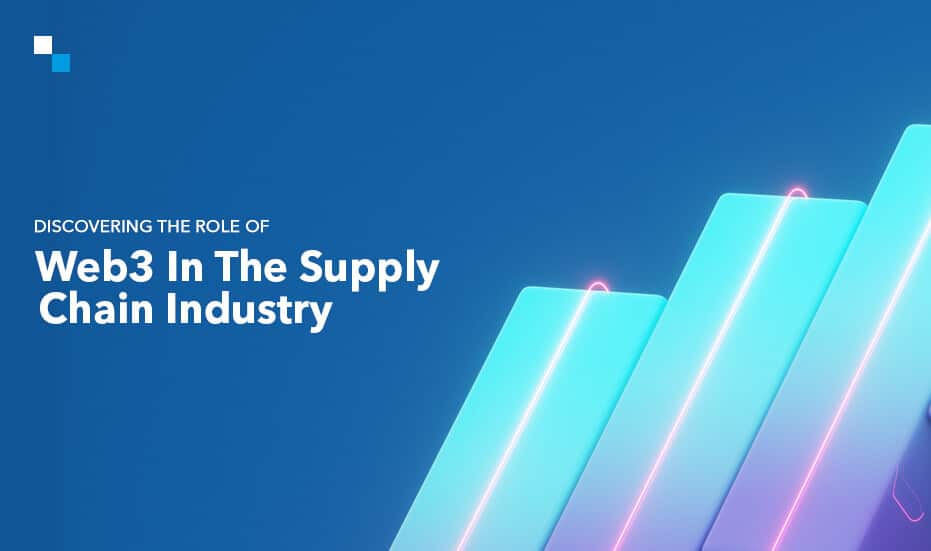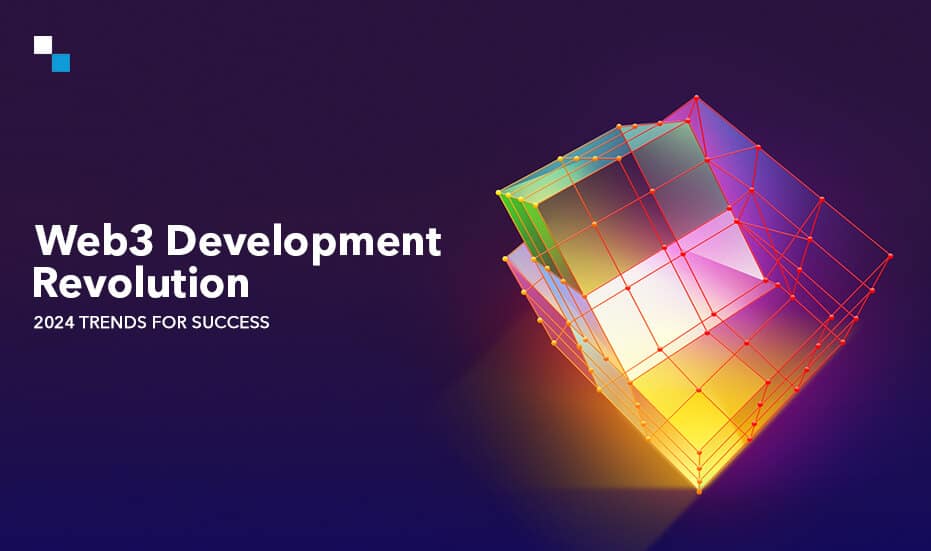
Build Your Own Metaverse Platform Like Decentraland: How Much Does It Cost?
April 10, 2024
The Ultimate Guide to Nested NFT Development: ERC-7401 Explained
April 12, 2024Today’s global supply chains are intricate and multifaceted, facing challenges due to globalization, just-in-time manufacturing, and ever-increasing customer demands. A disruption in any part of this complex web can ripple throughout the entire chain and result in widespread disruptions. However, a new solution is emerging – Web3.
Web3 development offers a promising solution to these complexities. It can use blockchain technology to improve important aspects like efficiency, traceability, and transparency. Additionally, Web3 solutions foster collaboration and trust among individuals, which allows for easier coordination and decision-making. As more and more businesses adopt Web3 principles, they can unlock new levels of resilience, agility, and innovation in their supply chains.
Let’s explore how Web3.0 development can be strategically implemented to achieve a secure and streamlined supply chain and delve deeper into the understanding of Web3 for various aspects of supply chain management.
Understanding Web3 In Supply Chain
Traditional supply chains often lack transparency and struggle with inefficiencies. Web3 is poised to cut through this complexity with its decentralized approach. It uses smart contracts and blockchain technology to create transparent, immutable records that ensure every transaction is safely recorded and readily available.
This transparency reduces the risk of fraud and streamlines processes by making supply chains more efficient and resilient. Web3 development disrupts the traditional supply chain by creating a new space where information flows like a crystal stream and trust solidifies automatically.
The benefits facilitated by Web3-enabled supply chains stand in stark contrast to the challenges inherent in traditional supply chain management. Let us closely understand the challenges of traditional supply chain management and how a Web 3.0 developer is expected to address them.
Pain Points Of Traditional Supply Chain Management
Traditional supply chains face problems that make it hard for them to work well and change in today’s fast-paced market. Here are some big challenges they deal with:
1. Issues: Conventional systems frequently lack transparency regarding the movement of goods and materials throughout the supply chain. This lack of clarity makes it challenging to:
- Track product lifecycles and detect potential quality concerns.
- Monitor inventory levels in real-time and prevent shortages or excess inventory.
- Respond promptly to disruptions or unforeseen delays at any point.
2. Information Disparity: Conventional supply chains involve multiple stakeholders with disparate information systems. This fragmented approach results in:
- Inconsistent or incomplete data stemming from disparities and a lack of information exchange.
- Difficulties in collaborative planning and forecasting end up in missed opportunities and inefficiencies.
- Problems in addressing risks across the entire supply network.
3. Manual Processes and Documentation: Traditional workflows often heavily rely on manual tasks such as:
- Paper-based order processing and document management are susceptible to errors.
- Manual data entry heightens the risk of inaccuracies and delays in updating information.
- Physical inventory management has restricted access to real-time data inventory levels and whereabouts.
The constraints encountered by conventional supply chains highlight the pressing necessity for inventive approaches to improve efficiency, transparency, and adaptability. This is where Web3 development provides transformative solutions that can change how supply chains function.
What is The Role of Web3 In Supply Chain Management?
Web 3.0 prioritizes decentralization, data privacy, and transparency, promising significant enhancements for supply chain management. Let us explore the role of Web 3.0 developer in the supply chain industry for a better understanding of the paradigm shift-
- Enhanced Transparency: Conventional supply chains face obscurity because they involve numerous entities, processes, and information systems. Tracing goods from their source to the final consumer presents difficulties for suppliers, manufacturers, distributors, and stakeholders. Web3.0 development allows businesses to tackle this challenge by ensuring transparency.
- Immutable Record-Keeping: Blockchain facilitates secure and tamper-proof record-keeping. It establishes an unalterable audit trail that records every transaction, movement, and transformation of products to ensure data integrity and accuracy across the supply chain.
- Advanced Encryption: It employs advanced cryptography to securely store and transmit data across its networks, ledgers, and smart contracts. Only authorized parties can access and manipulate supply chain data and assets to ensure information integrity within decentralized systems.
- Smart Contracts For Automation: Smart contracts are an integral part of Web3 development and they help streamline essential supply chain operations including payments, shipping notifications, inspections, and trades. Governed by predefined rules, these automated contracts eliminate paperwork, enhance predictability, and minimize errors or fraud in partnerships.
- Empowering Stakeholders: Decentralization removes the reliance on a single entity controlling the flow of information and resources. Every participant in the supply chain – producers, distributors, retailers, and consumers – has access to the same immutable data on the blockchain. This fosters transparency, accountability, and fairer interactions.
Web 3.0 has the potential to provide answers to persistent problems in the sector by emphasizing decentralization, data privacy, and transparency. Supply chain management will be completely changed to create new opportunities for sustainability in the global economy by adopting Web 3.0’s guiding principles.
Thus, if you are also planning to invest in Web3 solutions for your business’s supply chain management, then you must connect with an experienced Web3.0 development company. They help you design the finest solutions tailored to your business needs under professional guidance.

Industries Leveraging Web3 in Supply Chain
Web3 is revolutionizing digital interactions with its decentralization, security, and transparency. Here’s a concise look at some impactful applications:
- E-commerce: Physical assets within a supply chain can be transformed into digital tokens on a blockchain. This enables the creation of innovative financing models. For instance, envision coffee farmers receiving instant micropayments upon delivery instead of waiting for lengthy invoices. Tokenization has the potential to streamline financial processes and empower smaller participants in the supply chain.
- Medicine & Healthcare: Web3 development provides a secure platform for handling sensitive patient information throughout the medical supply chain. Blockchain technology improves patient safety and builds trust by preventing unwanted access and ensuring data privacy.
- DAO-powered Collaboration: Groups such as farmers’ cooperatives can utilize DAO to collectively oversee their supply chains. They gain the ability to make transparent decisions via the DAO platform, track shared resources on the blockchain, and ensure equitable profit distribution through smart contracts with Web3.0 development. This method holds promise in democratizing decision-making within supply chains.
- Sustainable Seafood Monitoring: An experienced Web 3.0 developer can introduce a transparent tracking mechanism for consumers who are looking for fresh seafood. This system traces the path of fish from capture to consumption by using blockchain records to validate responsible fishing methods.
As technology advances, we anticipate several creative applications to address challenges and cultivate a secure, transparent, and fair global supply network. Get ready to be a part of this exclusive transformation! Partner with a renowned and leading Web3 development firm to enhance your business operations and management.
Future Outlook: Web3.0 In Supply Chain Management
Blockchain, smart contracts, and decentralized networks bring openness, security, and efficiency to complex global operations. This translates to better tracking of goods, reduced waste, and easier compliance.
Real-time data and automated processes through smart contracts minimize errors and fraud and enable new business models like direct-to-consumer channels. The future of Web 3.0 in supply chains is brimming with potential. Real-time data will be directly transferred onto the blockchain by sensors embedded in every package, pallet, and container through integration with the Internet of Things. This creates unparalleled transparency that allows predictive maintenance, optimized routing, and even automatic triggering of smart contracts based on specific conditions.
Wrap-Up
Web3’s application in supply chain management presents a groundbreaking opportunity to revolutionize the way products are verified, tracked, and traced across global networks. This shift promises a future characterized by a more trustworthy, authentic, productive, and secure ecosystem.
For entrepreneurs seeking to leverage Web3 and optimize their supply chains, Antier is your ideal partner. We are a leading Web3 development company, and we are passionate about helping businesses unlock the potential of this transformative technology. Together, we can tailor a Web3 solution that meets your unique needs and empowers your supply chain for a successful future.



